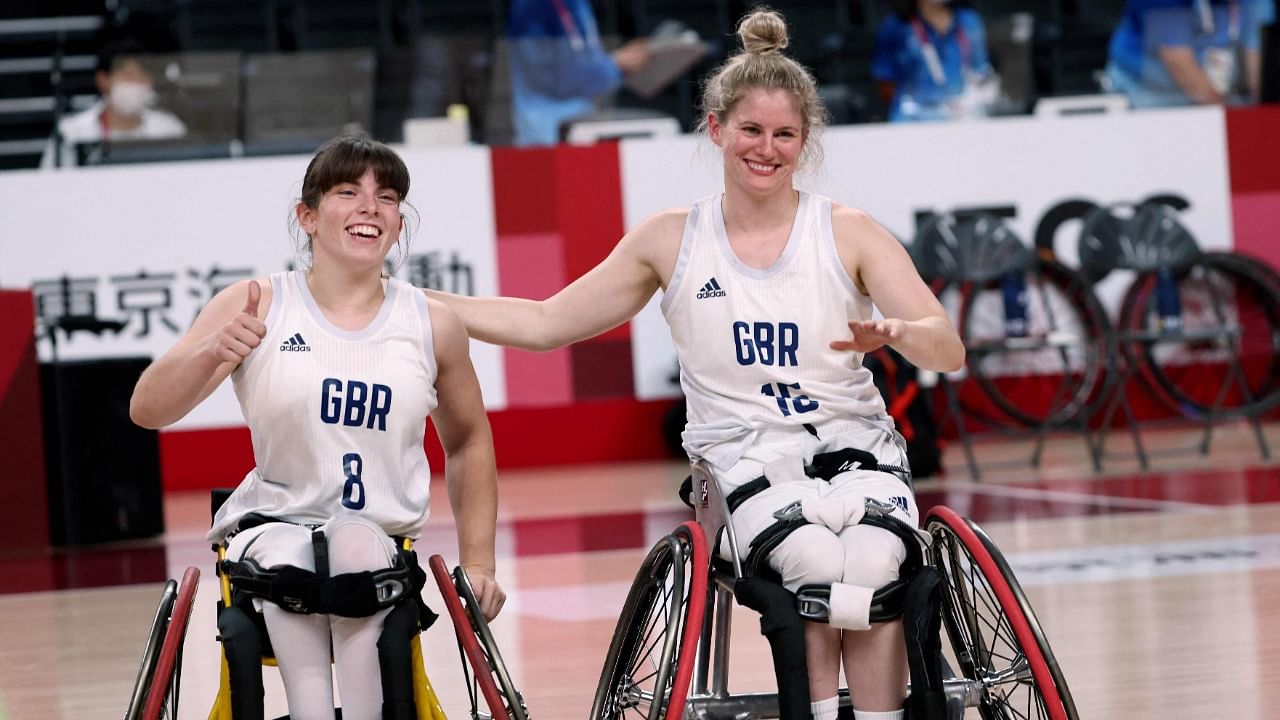
The Paralympics can help change perceptions of LGBTQ people with disabilities, say two wheelchair basketballers who joke they are Britain's answer to US power couple Megan Rapinoe and Sue Bird.
Laurie Williams and Robyn Love, who have been in a relationship for more than six years and got engaged last year, helped lead the British team to a seventh-place finish at the Tokyo Games.
Media reports estimate there are over 30 openly LGBTQ athletes competing at the Tokyo Paralympics -- roughly three times the number at the 2016 Rio Games.
Williams thinks the popularity of social media has helped make LGBTQ athletes more visible, and hopes the Paralympics can accelerate that trend.
"We're just trying to show people that there are LGBT athletes, there are LGBT athletes with disabilities, and we are here trying to create a positive representation of that," she said.
"Just to know that sometimes being ourselves can make a little bit of a difference to someone else is a really positive thing."
Williams and Love first met as team-mates and soon began dating, and now live together with their labradoodle dog Whiskey.
They got engaged in February last year when Love proposed under the Eiffel Tower during a trip to Paris, although the pandemic has forced them to shelve their wedding plans.
Love jokes that they are not as high profile as US football star Rapinoe and her basketballer fiancee Bird, but they "like to think one day" they can be.
For now, they are happy to make a difference on the court and off, and Love thinks "sport is such a powerful vehicle to make that happen".
"We're no longer getting pushed just one type -- 'if you're a lesbian, you have to look like this'," she said.
"Back in the day, what was on TV was stereotypical. We represent not one but two minorities, in that we're trying to represent the disabled community as well."
Williams has paralysis in her legs as a result of a virus she contracted as a toddler, while Love has a lower leg development impairment.
Love does not use a wheelchair every day, and she says her relationship with Williams has opened her eyes to the discrimination people with disabilities face.
She says people in shops will automatically talk to her rather than her wheelchair-bound partner, and she hopes the Paralympics can help "empower people with disabilities".
"To me, the disabled movement is further behind the LGBT movement, the Black Lives Matter movement, because it hasn't been able to have an opportunity to find its voice," she said.
"But I feel like it's getting there."
Love and Williams say they are disappointed by their team's seventh-place finish in Tokyo, arguing that the lack of warm-up games due to the pandemic did not help.
Wheelchair basketball is the only all-female team representing Britain at the Paralympics, and Williams hopes the increased media coverage in Tokyo can send a powerful message.
"I think it's about time we had that level of exposure, because we're just athletes, at the end of the day. Our disabilities are on the back burner," she said.
Love says the pair's first goal after the Games is to "give our little doggie a kiss and a cuddle" when they return to Britain.
Then they will turn their thoughts towards the European championships in December, before Love represents Scotland in 3x3 basketball in next year's Commonwealth Games.
Love jokes that Williams is "scared" to play for England and face her at the competition, but the pair are serious about the impact sport has had on their lives.
"I think it's great that the Paralympics is about not just sport -- it's about changing the world for the positive," said Love.